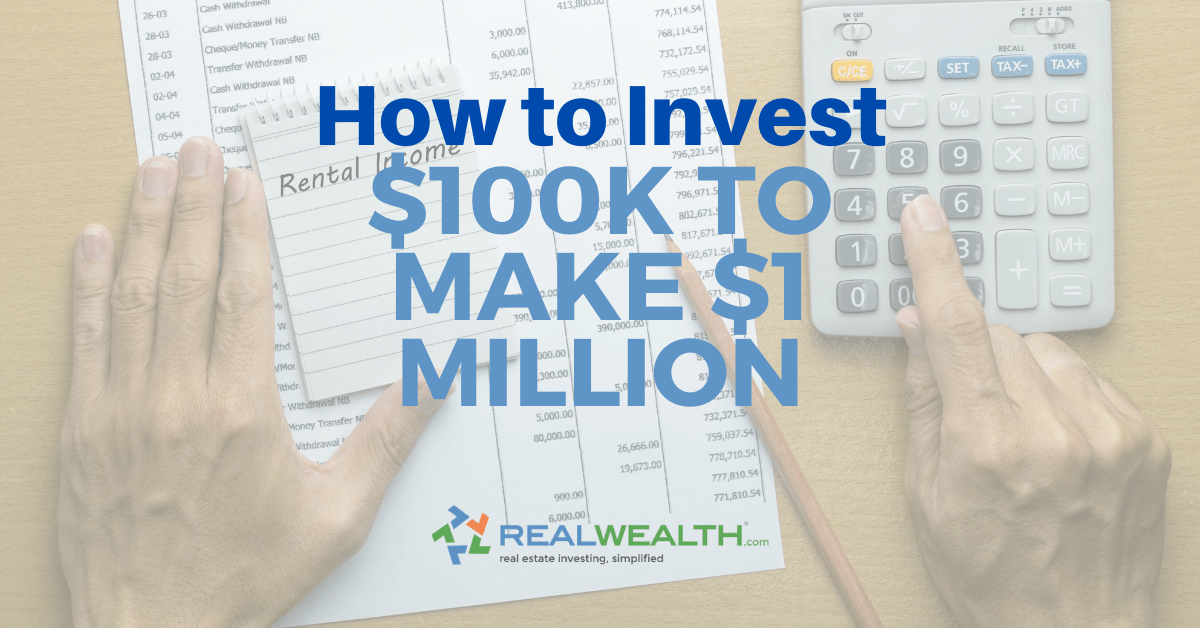
In the real estate world, procuring causes is a term used to describe the original reason for a buyer to buy or sell a property. The motivation could be as simple as a sign placed at an open house catching someone's interest or as serious and invasive as an advertisement published in the newspaper. No matter the reason for the sale, it is crucial that you complete the deal.
Defining Procuring Cause
One of the most common questions that brokers and buyers face is who will receive the commission for a sale of a property. This question depends on which agent procured the deal, and can be difficult for buyers who work with multiple brokers throughout the home buying process.
The National Association of Realtors defines procuring cause to be the "unbroken sequence of events that resulted in successful transaction". This definition might seem obvious, but you should remember it is not based solely on one factor. This is a complex topic that involves many factors. These include the roles and relationships between the parties in the transaction.

Determining What Is Procuring Cause In Real Estate
In New York City, procuring cause is the key to figuring out who will get paid on a transaction. This is because the commission only goes to the broker who is deemed the procuring cause of the sale.
It is not a black-and white rule that determines which firm gets the commission. A panel of judges will decide who receives the commission for the sale after weighing all the evidence.
How Does It Work?
To determine whether the broker is responsible for procuring a transaction, a hearing panel must examine all the facts and circumstances. They will look at things like how the broker reached out to the potential customer, what led them to contact the brokerage, and what the outcome of those efforts was.
They will also examine the broker's communications with the potential buyer. How and when they entered into the transaction and how the relationship developed.

The panel also takes into account previous arbitration or case law decisions. This ensures that the hearing panel is able to make an accurate decision on all facts and circumstance.
What is Procuring Cause in Real Estate?
Although the National Association of Realtors has provided a list of suggested criteria to consider when determining procuring reason, this list is not comprehensive. It also focuses on the interplay of these factors to establish the truth of the matter.
What is the procurement cause in real estate?
There is no universal answer to determining the person who should receive a commission for a sale. Each case is different and each arbitration is based on facts and witnesses presented by both parties.
FAQ
What can I do to fix my roof?
Roofs can become leaky due to wear and tear, weather conditions, or improper maintenance. Roofing contractors can help with minor repairs and replacements. Contact us to find out more.
What are some of the disadvantages of a fixed mortgage rate?
Fixed-rate loans are more expensive than adjustable-rate mortgages because they have higher initial costs. Additionally, if you decide not to sell your home by the end of the term you could lose a substantial amount due to the difference between your sale price and the outstanding balance.
How much money can I get to buy my house?
This can vary greatly depending on many factors like the condition of your house and how long it's been on the market. Zillow.com says that the average selling cost for a US house is $203,000 This
What flood insurance do I need?
Flood Insurance protects from flood-related damage. Flood insurance protects your possessions and your mortgage payments. Find out more about flood insurance.
How long does it take to sell my home?
It depends on many factors including the condition and number of homes similar to yours that are currently for sale, the overall demand in your local area for homes, the housing market conditions, the local housing market, and others. It can take anywhere from 7 to 90 days, depending on the factors.
What are the three most important things to consider when purchasing a house
The three most important things when buying any kind of home are size, price, or location. Location refers to where you want to live. Price refers how much you're willing or able to pay to purchase the property. Size refers to the space that you need.
How much money do I need to save before buying a home?
It all depends on how many years you plan to remain there. Save now if the goal is to stay for at most five years. However, if you're planning on moving within two years, you don’t need to worry.
Statistics
- 10 years ago, homeownership was nearly 70%. (fortunebuilders.com)
- It's possible to get approved for an FHA loan with a credit score as low as 580 and a down payment of 3.5% or a credit score as low as 500 and a 10% down payment.5 Specialty mortgage loans are loans that don't fit into the conventional or FHA loan categories. (investopedia.com)
- This means that all of your housing-related expenses each month do not exceed 43% of your monthly income. (fortunebuilders.com)
- Based on your credit scores and other financial details, your lender offers you a 3.5% interest rate on loan. (investopedia.com)
- The FHA sets its desirable debt-to-income ratio at 43%. (fortunebuilders.com)
External Links
How To
How to Manage a Property Rental
You can rent out your home to make extra cash, but you need to be careful. We'll help you understand what to look for when renting out your home.
Here's how to rent your home.
-
What should I consider first? Take a look at your financial situation before you decide whether you want to rent your house. You may not be financially able to rent out your house to someone else if you have credit card debts or mortgage payments. You should also check your budget - if you don't have enough money to cover your monthly expenses (rent, utilities, insurance, etc. ), it might not be worth it.
-
How much is it to rent my home? There are many factors that influence the price you might charge for renting out your home. These include things like location, size, features, condition, and even the season. You should remember that prices are subject to change depending on where they live. Therefore, you won't get the same rate for every place. Rightmove has found that the average rent price for a London one-bedroom apartment is PS1,400 per mo. This means that you could earn about PS2,800 annually if you rent your entire home. Although this is quite a high income, you can probably make a lot more if you rent out a smaller portion of your home.
-
Is it worth it? Doing something new always comes with risks, but if it brings in extra income, why wouldn't you try it? It is important to understand your rights and responsibilities before signing anything. It's not enough to be able to spend more time with your loved ones. You'll need to manage maintenance costs, repair and clean up the house. Make sure you've thought through these issues carefully before signing up!
-
Are there any advantages? Now that you have an idea of the cost to rent your home, and are confident it is worth it, it is time to consider the benefits. There are many reasons to rent your home. You can use it to pay off debt, buy a holiday, save for a rainy-day, or simply to have a break. You will likely find it more enjoyable than working every day. You could make renting a part-time job if you plan ahead.
-
How can I find tenants Once you've made the decision that you want your property to be rented out, you must advertise it correctly. Online listing sites such as Rightmove, Zoopla, and Zoopla are good options. Once you receive contact from potential tenants, it's time to set up an interview. This will help you assess their suitability and ensure they're financially stable enough to move into your home.
-
What are the best ways to ensure that I am protected? If you fear that your home will be left empty, you need to ensure your home is protected against theft, damage, or fire. In order to protect your home, you will need to either insure it through your landlord or directly with an insured. Your landlord will typically require you to add them in as additional insured. This covers damages to your property that occur while you aren't there. However, this doesn't apply if you're living abroad or if your landlord isn't registered with UK insurers. In such cases, you will need to register for an international insurance company.
-
Even if your job is outside the home, you might feel you cannot afford to spend too much time looking for tenants. However, it is important that you advertise your property in the best way possible. You should create a professional-looking website and post ads online, including in local newspapers and magazines. You'll also need to prepare a thorough application form and provide references. While some prefer to do all the work themselves, others hire professionals who can handle most of it. In either case, be prepared to answer any questions that may arise during interviews.
-
What should I do after I have found my tenant? If you have a current lease in place you'll need inform your tenant about changes, such moving dates. If this is not possible, you may negotiate the length of your stay, deposit, as well as other details. Keep in mind that you will still be responsible for paying utilities and other costs once your tenancy ends.
-
How do you collect the rent? When it comes to collecting the rent, you will need to confirm that the tenant has made their payments. If your tenant has not paid, you will need to remind them. You can deduct any outstanding payments from future rents before sending them a final bill. You can always call the police to help you locate your tenant if you have difficulty getting in touch with them. If there is a breach of contract they won't usually evict the tenant, but they can issue an arrest warrant.
-
How do I avoid problems? Although renting your home is a lucrative venture, it is also important to be safe. Ensure you install smoke alarms and carbon monoxide detectors and consider installing security cameras. Also, make sure you check with your neighbors to see if they allow you to leave your home unlocked at night. You also need adequate insurance. You should not allow strangers to enter your home, even if they claim they are moving in next door.